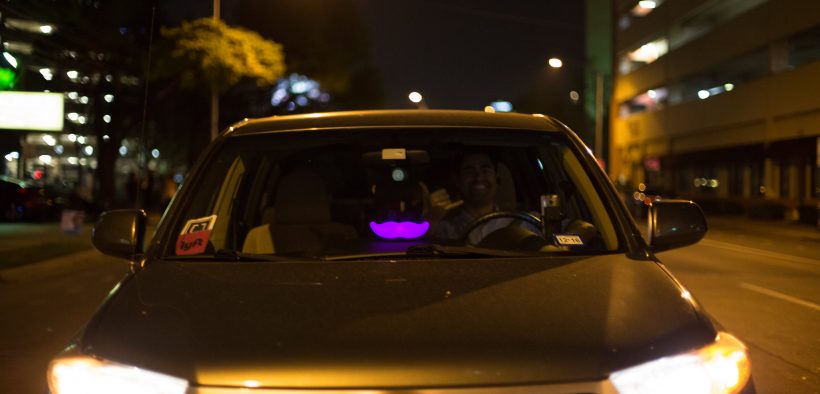Global Lyft, Uber Strike Is A Reaction To Gig Economy

“Uber says it can’t pay its drivers more money, but rewarded its CEO with nearly $50 million last year.” – Elizabeth Warren on Lyft, Uber strike
A Lyft and Uber strike was held worldwide and across 10 major US cities Wednesday, as ride-share laborers demanded better pay, transparency, and working conditions from their employers. The drivers protested in anticipation of Uber’s Initial Public Offering (IPO) Friday, hoping to draw attention to the crucial role of drivers in ride-hailing apps’ multi-billion dollar business model.
Drivers are fighting for transparency in the companies’ fare generating algorithm, which they say is opaque about how it calculates drivers’ wages.
“It’s really hard to figure out how much you’re actually making at the end of the day, especially after all your expenses. That’s a major piece of the transparency issue,” Moira Muntz, a spokeswoman for the Independent Drivers’ Guild, told the Washington Post. Muntz said drivers’ pay has declined as companies have taken a bigger portion of customers’ fees
2020 Candidates React to Lyft, Uber Strike
Several 2020 Democratic hopefuls issued statements of support for the strike, including Sen. Bernie Sanders and Sen. Elizabeth Warren. Sanders challenged Uber’s argument that it couldn’t afford to pay its drivers more, since it paid its top five executives $143 million in compensation last year:
“Uber says it can’t pay its drivers more money, but rewarded its CEO with nearly $50 million last year. People who work for multibillion-dollar companies should not have to work 70 or 80 hours a week to get by. I stand with the Uber and Lyft drivers going on strike on May 8.”
Senator Warren, who has been an outspoken critic of the tech industry’s unregulated power, criticized Uber and Lyft for using their leverage over contractors to squeeze their pay.
“.@Uber and @lyft executives are preparing to cash in by taking their companies public, so they’re squeezing their drivers and slashing their pay. The drivers are fighting for living wages and better working conditions—and I stand with them,” Sen. Warren tweeted.
Rep. Alexandria Ocasio-Cortez also expressed support for the Lyft and Uber strike, tweeting to her platform of over 4 million followers: “Your Direct Action for today: Don’t take an Uber or Lyft just for the day. (Just today! Cabs are fine! You can do it!). It’s a small but big way you can help all the drivers you’ve met get paid more to feed their families + support themselves.”
Lyft, Uber Strike and Growing Gig Economy
Criticism of Uber and Lyft’s labor practices addresses a bigger trend in America – the “gig economy” – where many workers are classified as contractors without traditional benefits like healthcare and retirement. 2020 Democratic hopeful Andrew Yang told the Washington Post the Uber and Lyft strikes reflect the need for a universal basic income to cushion workers against the shifting labor market.
“As Uber and Lyft seek lofty valuations from Wall Street, much of their promise to investors relies on spending less on human labor, and over the long term, replacing those human drivers with computers. That’s why Yang’s proposal for a universal basic income would be paid for by companies benefiting most from automation,” wrote the Washington Post’s Cat Zakrzewski.
“We need to stop living in a fantasy land where we think these companies are supposed to treat us like family members and employ us for years. Their incentives are in the opposite direction,” Yang said.
Yang criticizes the collective bargaining-oriented solutions other Democratic candidates, such as Sen. Sanders, have proposed. “We have to stop pretending its the 1960s,” said Yang, who argues that while unions are a piece of the puzzle, they will not be enough to keep workers afloat in the high-tech economy.
Yang calls for a more “robust debate” on labor, automation, and tech regulation among 2020 Democrats, and with the polling and donations to qualify, the long-shot candidate will likely join the debate stage with Sanders, Warren, and other prominent 2020 hopefuls. Yang believes the failure to address the transformative impact of tech was behind President Trump’s 2016 victory, and he hopes to raise the national profile of the issue in 2020 to avoid “having history repeat itself.”















